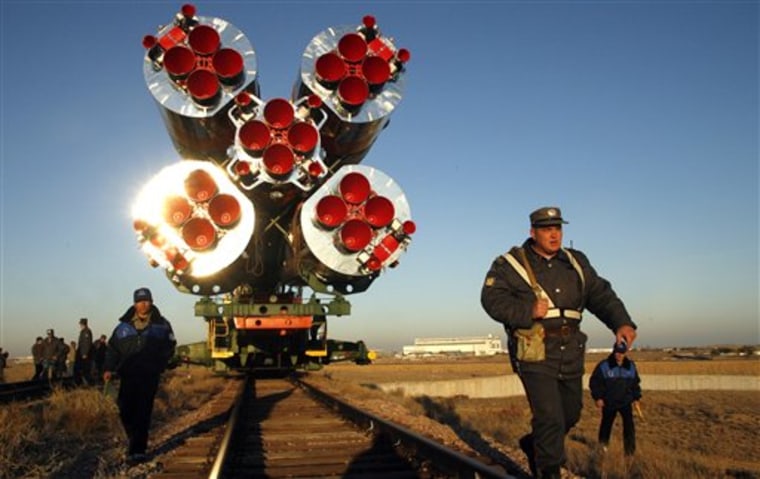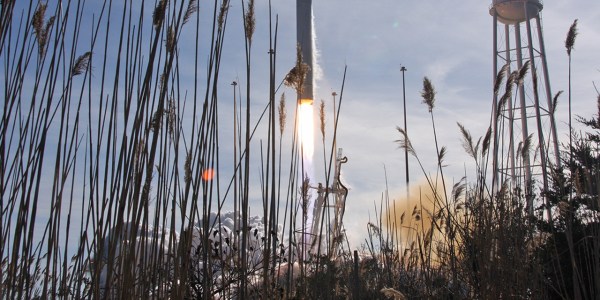A Russian space official presented a traditional Kazakh whip Tuesday to American astronaut Peggy Whitson, a day before she heads into orbit to become the first woman to command the international space station.
Whitson laughed as Russian space official Sergei Semchenko handed her the three-pronged whip, saying she would take it on board the Soyuz-FG rocket “just in case.”
The rocket is set to blast off Wednesday with Whitson, Russian cosmonaut Yuri Malenchenko and Malaysia’s first astronaut, Sheikh Muszaphar Shukor, on board.
Whitson, of Beaconsfield, Iowa, said the mission serves as an example of peace between the West and the Muslim world.
“The world is one place, and it’s very beautiful” when viewed from space, she said during a news conference at the Baikonur Cosmodrome, which Russia rents from Kazakhstan.
Shukor, who will be the ninth Muslim in space, said he hoped his 12-day trip will be an inspiration to his Southeast Asian nation and Muslims around the world.
“It’s a small step for me but a great leap for the Malaysian people,” he said, rephrasing Neil Armstrong’s legendary words following the Apollo landing on the moon. “I feel a responsibility for all the Muslims in the world.”
Slideshow 12 photos
Month in Space: January 2014
During his stay on the space station, Shukor, a physician, is to experiment with microbes of tropical diseases and with proteins for a potential HIV vaccine, and also study the effects of microgravity and space radiation on cancer cells and human genes.
“Shukor’s mission will show that Muslims can contribute to global scientific research,” Malaysia’s space minister, Jamaludin Jarjis, told The Associated Press. “It will also help remove the negative perception of Muslims in the world.”
The mission coincides with the last days of Ramadan, the holy month when Muslims fast from dawn until sundown, but Malaysian clerics decreed that Shukor will be excused from fasting while in space.
His religion also requires that he face Mecca for prayer — a direction that will change as the craft orbits the earth — but clerics decided that the exact location matters only for the beginning of the prayer ritual.
Shukor is to return to Earth on Oct. 21 with two Russian members of the current space station crew.
Whitson and Malenchenko will stay on as the station’s new crew, and will be joined in October by U.S. astronaut Daniel Tani, who is arriving with the shuttle Discovery. Tani will replace fellow American Clayton Anderson, who has been at the station since June.
The $25 million agreement for a Malaysian astronaut to fly to space was negotiated in 2003 along with a $900 million deal for Malaysia to buy 18 Russian fighter jets.
The first Muslim in space was Saudi Prince Sultan bin Salman, who joined the crew of the shuttle Discovery in 1985. Shukor follows Iranian-American Anousheh Ansari, a Muslim who became the first female space tourist last year.

